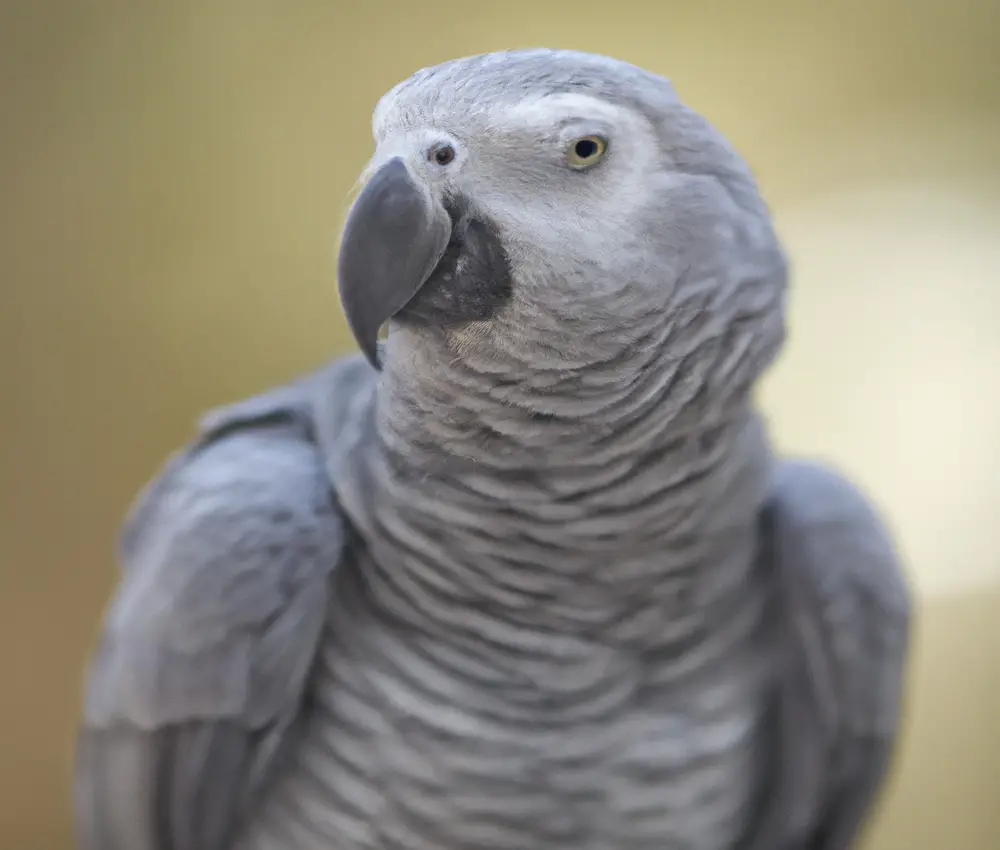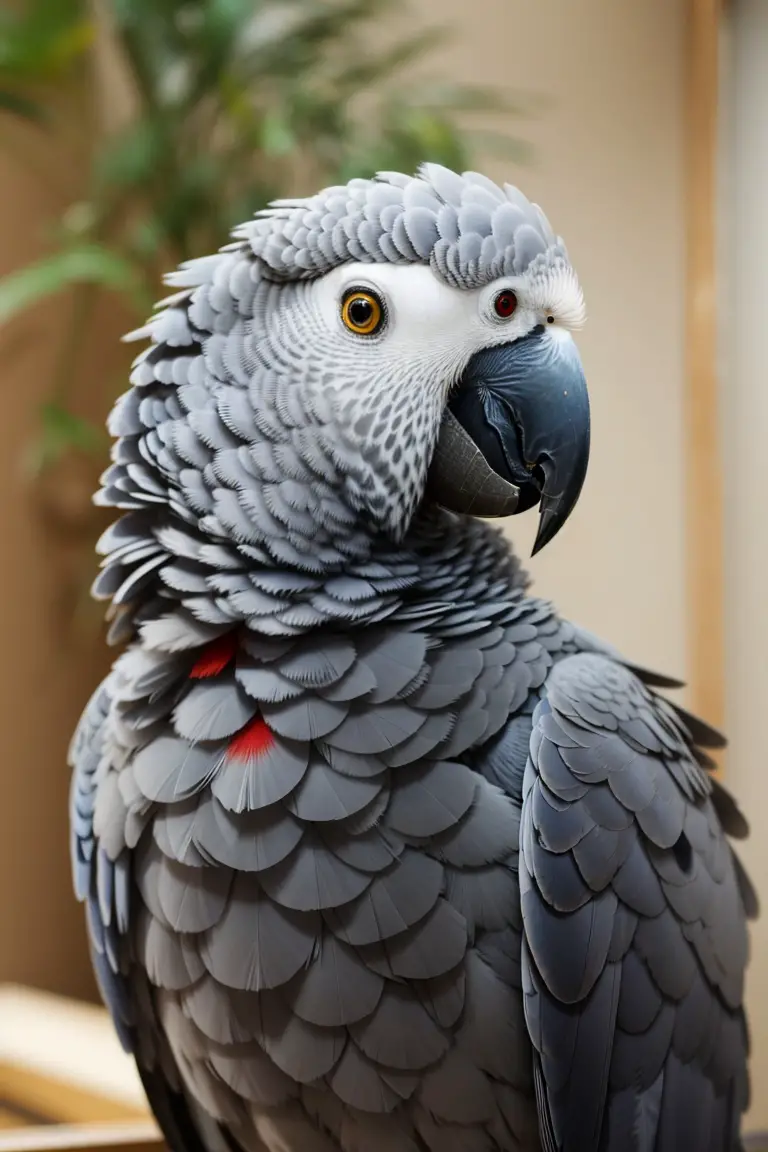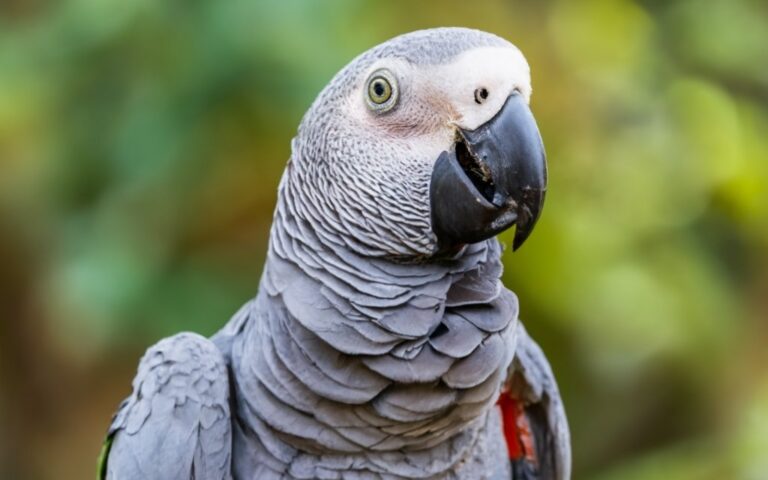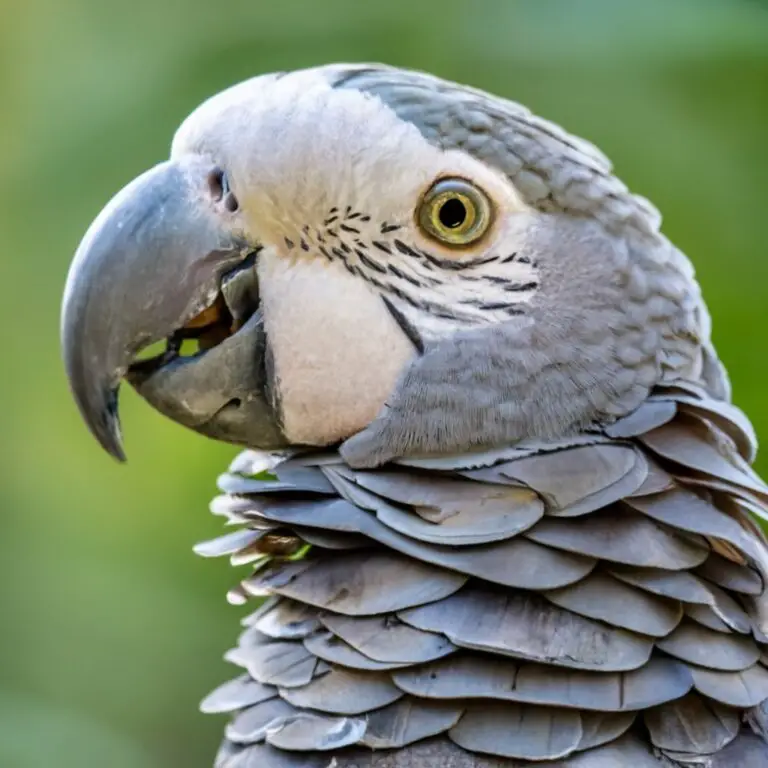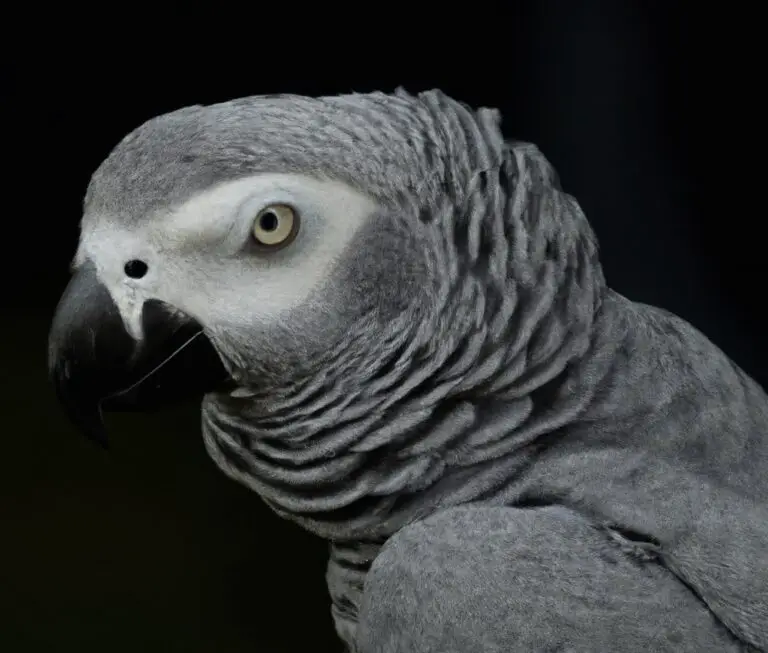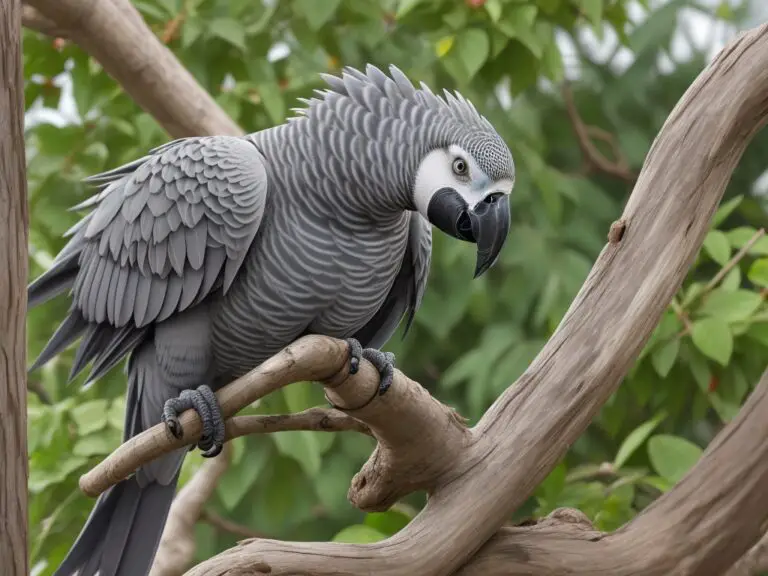What Is The Average Lifespan Of African Grey Parrots?
Key Takeaways:
- African Grey Parrots have an average lifespan of 50 to 60 years.
- Proper care and nutrition can contribute to a longer lifespan in African Grey Parrots.
- African Grey Parrots require mental stimulation and social interaction for a healthier and longer life.
- Regular veterinary check-ups are essential for maintaining the health and lifespan of African Grey Parrots.
Do you ever wonder how long African Grey Parrots can live?
These captivating creatures have stolen the hearts of bird lovers around the world.
As an expert on these feathered friends, I’m here to shed some light.
So, what is the average lifespan of African Grey Parrots?
From genetics to diet and environmental factors, there are several key elements that influence their lifespan.
In this article, we’ll delve into the factors that affect their lifespan, explore the average lifespan of African Grey Parrots in the wild and captivity, and share tips on how to increase their longevity.
Get ready to unlock the secrets to a long and fulfilling life for your African Grey Parrot!
| Category | Lifespan |
|---|---|
| Wild African Grey Parrots | 40 – 60 years |
| Captive African Grey Parrots | 50 – 60 years |
| Oldest African Grey Parrot on Record | 82 years |
Factors Affecting Lifespan of African Grey Parrots
Several factors can affect the lifespan of African Grey Parrots, including genetics, diet, environment, and veterinary care.
Genetics and Species Variation
Genetics plays a significant role in the lifespan of African Grey Parrots. Different species within the African Grey Parrot family can have varying lifespans due to genetic factors.
For example, the Timneh African Grey Parrot has an average lifespan of 30-40 years, while the Congo African Grey Parrot can live up to 50-60 years or more.
These genetic differences contribute to the overall variation in lifespan among African Grey Parrots.
Diet and Nutrition
Diet and nutrition play a vital role in the lifespan of African Grey Parrots.
Providing a balanced and varied diet is crucial for their overall health and wellbeing.
A nutritious diet should consist of feed pellets specifically formulated for parrots, fresh fruits, vegetables, and a limited amount of seeds and nuts.
It is important to avoid high-fat, sugary, or processed foods as they can lead to health problems.
Clean water should always be available.
Remember, a healthy diet is the key to a long and happy life for your African Grey Parrot!
Environmental Factors
Environmental factors play a significant role in the lifespan of African Grey Parrots. Here are some factors that can impact their overall health and longevity:
- Temperature: Extreme temperature fluctuations can be harmful to these parrots. It’s crucial to keep their environment at a stable temperature.
- Humidity: African Grey Parrots thrive in moderate humidity levels. Low humidity can lead to respiratory issues, while high humidity can promote bacterial and fungal growth.
- Air Quality: Clean air is essential for their respiratory health. Avoid exposing them to smoke, fumes, or other pollutants that can compromise their immune system.
- Lighting: Adequate exposure to natural and artificial light is vital for their mental and physical well-being. Ensure they receive appropriate light cycles for optimal health.
- Noise Levels: Loud noises and constant disruptions can be stressful for African Grey Parrots. Provide them with a calm and quiet environment to support their overall well-being.
- Toxins and Hazardous Substances: Always be cautious of plants, household chemicals, and certain foods that are toxic to parrots. Keep these substances out of their reach.
Taking these environmental factors into account and providing a safe, comfortable, and stimulating environment for your African Grey Parrot can contribute to their long and healthy life.
Veterinary Care and Regular Check-ups
Veterinary care and regular check-ups are essential for the health and well-being of African Grey Parrots. Regular visits to the veterinarian ensure that any potential health issues are identified and addressed early on.
During check-ups, the veterinarian will examine the parrot, assess its overall health, and may recommend necessary vaccinations or treatments.
Additionally, the veterinarian can provide valuable advice on proper nutrition, grooming, and enrichment to keep your African Grey Parrot happy and healthy. So, make sure to schedule regular check-ups to ensure the longevity and vitality of your feathered friend.
Average Lifespan of African Grey Parrots
The average lifespan of African Grey Parrots can vary, but they typically live for around 40 to 60 years.
Wild African Grey Parrots
Wild African Grey Parrots are native to the dense forests of West and Central Africa. They are known for their intelligence and ability to mimic human speech.
These parrots have a lifespan of around 40-60 years in the wild, making them long-lived creatures.
They form tight-knit social groups in the wild and are highly adaptable to their surroundings. Wild African Grey Parrots face threats from habitat loss and illegal trapping for the pet trade, which has led to a decline in their population.
Conservation efforts are crucial to protect these remarkable birds and ensure their survival in the wild.
African Grey Parrots in Captivity
African Grey Parrots in captivity require proper care and attention to thrive. It’s important to provide a spacious cage, as they are highly intelligent and need mental stimulation.
Offering a balanced diet with a combination of high-quality pellets, fresh fruits, and vegetables is crucial for their health.
Regular interaction and socialization with humans are essential to prevent boredom and behavioral problems. These beautiful birds also need a consistent daily routine and plenty of opportunities for exercise and play.
Increasing the Lifespan of African Grey Parrots
Want to increase the lifespan of your African Grey Parrot? Keep them healthy and happy by providing a nutritious diet, suitable environment, mental and physical stimulation, and regular veterinary care.
Suitable Environment and Enclosure
A suitable environment and enclosure are essential for the well-being of African Grey Parrots.
Here are some key factors to consider:
- Sufficient Space: African Grey Parrots need plenty of room to move around and exercise their wings. A spacious cage or aviary is crucial to provide them with a comfortable living area.
- Secure and Sturdy Construction: Make sure the enclosure is made of durable materials and has strong locks to prevent any escape or potential accidents.
- Natural Lighting: Place the enclosure in an area where the parrot can have exposure to natural light. This helps regulate their biological clock and promotes overall health.
- Temperature and Humidity: African Grey Parrots are sensitive to extreme temperatures. Ensuring a stable and comfortable environment with suitable temperature and humidity levels is essential for their well-being.
- Stimulating Environment: Provide a variety of perches, toys, and mentally stimulating activities to keep your African Grey Parrot engaged and entertained. This helps prevent boredom and encourages natural behaviors.
Mental and Physical Stimulation
Mental and physical stimulation is vital for the well-being of African Grey Parrots.
To keep them happy and healthy, engage them in activities that challenge their intelligence.
Provide toys that require problem-solving, such as puzzle feeders.
Interact with them regularly, offering socialization and mental stimulation.
Encourage physical exercise by providing space for flying and climbing.
Offer opportunities for daily flight in a safe environment.
Play games with them and rotate their toys regularly to keep their environment stimulating.
Regular Veterinary Care
Regular veterinary care is essential for the health and well-being of African Grey Parrots.
It helps to identify and treat any potential health issues early on, ensuring a longer lifespan for your feathered friend.
During veterinary check-ups, the veterinarian will conduct a thorough examination, including a physical examination, blood tests, and fecal tests.
They may also provide vaccinations and offer advice on diet, exercise, and overall care.
Regular check-ups can catch problems early and lead to a happier and healthier parrot.
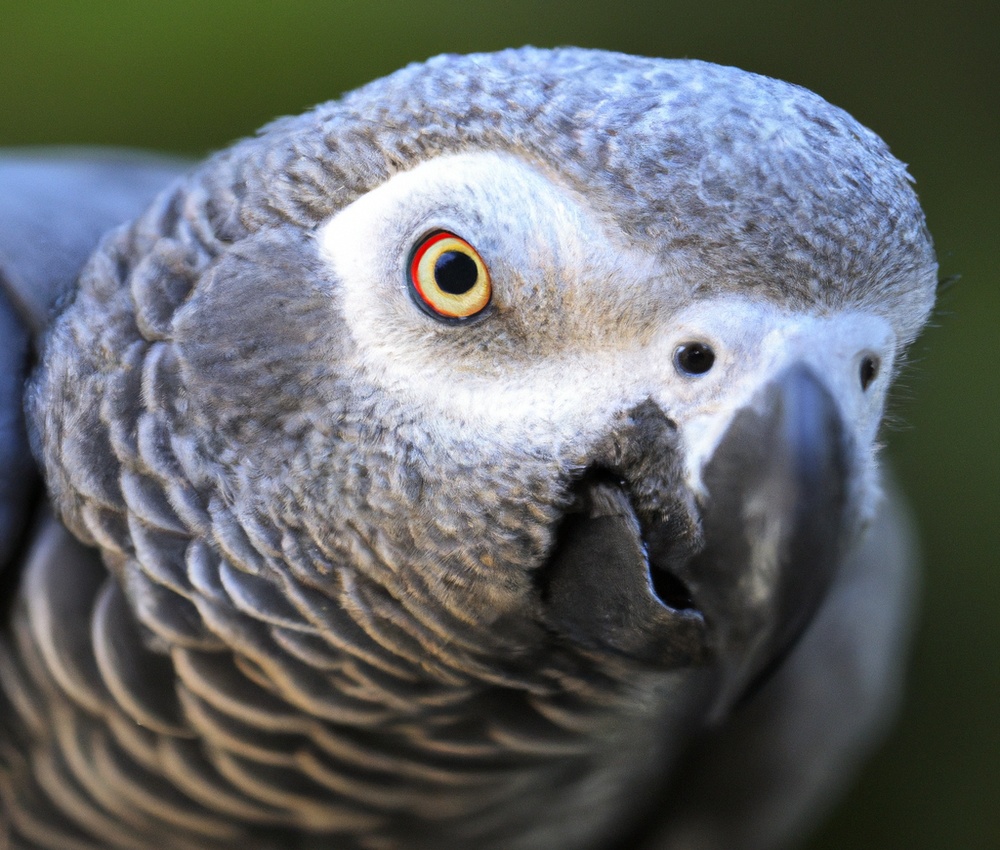
Frequently Asked Questions
What is the average lifespan of an African Grey Parrot?
The average lifespan of an African Grey Parrot is approximately 50 to 60 years. These intelligent and charismatic birds can live even longer with proper care, nutrition, and a stimulating environment.
Regular veterinary check-ups, a balanced diet, and mental stimulation through toys and interaction are essential for their longevity.
Providing a safe and stress-free environment, avoiding exposure to toxins or hazards, and establishing a strong bond with your parrot can also contribute to their overall well-being and lifespan. It’s important to note that individual care and genetics can influence the lifespan of an African Grey Parrot.
How can I increase the lifespan of my African Grey Parrot?
To increase the lifespan of your African Grey Parrot, there are a few important things to keep in mind. Firstly, provide a balanced and nutritious diet that includes a variety of fresh fruits, vegetables, and high-quality pellets.
Secondly, ensure regular veterinary check-ups to catch any potential health issues early on.
Thirdly, give your parrot plenty of mental stimulation through toys, puzzles, and social interaction. Lastly, create a safe and stress-free environment by avoiding toxins, providing adequate space, and minimizing exposure to loud noises.
Following these guidelines can help optimize your parrot’s health and increase its lifespan.
What are common health issues that can affect African Grey Parrots?
African Grey Parrots are prone to certain health issues.
Here are some common ones to be aware of:
- Psittacine Beak and Feather Disease (PBFD: This viral infection affects the bird’s feathers, beak, and immune system, leading to feather loss, beak deformities, and weakened immunity.
- Respiratory infections: African Grey Parrots are susceptible to respiratory infections like pneumonia and sinusitis. Symptoms include coughing, sneezing, difficulty breathing, and nasal discharge.
- Feather plucking: This behavioral problem can be caused by stress, boredom, or medical issues. It can lead to severe feather loss and skin injuries if not addressed.
- Proventricular Dilatation Disease (PDD: Also known as “Macaw wasting disease,” PDD affects the nervous system and digestive tract. It causes weight loss, regurgitation, and difficulty in swallowing.
- Vitamin A deficiency: Insufficient intake of vitamin A can lead to respiratory infections, eye problems, and immune system disorders in African Grey Parrots. Providing a balanced diet with plenty of fresh fruits and vegetables is crucial.
- Psittacosis: This bacterial infection can affect a bird’s respiratory system, liver, and digestive tract. Symptoms include loss of appetite, weight loss, diarrhea, and respiratory distress.
Where can I find a reputable African Grey Parrot breeder?
Finding a reputable African Grey Parrot breeder can be a crucial aspect of bringing home a healthy and well-socialized bird.
Here are a few places where you can start your search:
- Avian Associations: Check with local avian associations or bird clubs in your area. They often have lists of reputable breeders that adhere to high standards of bird care.
- Online Directories: Websites like the African Grey Parrot Society or African Grey Parrot Breeders Association provide directories of reputable breeders. These directories often include breeder reviews and recommendations.
- Referrals: Talk to other parrot owners or enthusiasts in your area. They may be able to recommend a reputable breeder based on their personal experiences.
- Rescue Organizations: Consider adopting a parrot from a reputable avian rescue organization. They often have African Grey Parrots available for adoption and can provide valuable information about the bird’s history and needs.
Remember to do your research, ask questions, and visit the breeder in person if possible.
A reputable breeder should be transparent, willing to answer your questions, and provide appropriate documentation for the birds they sell.
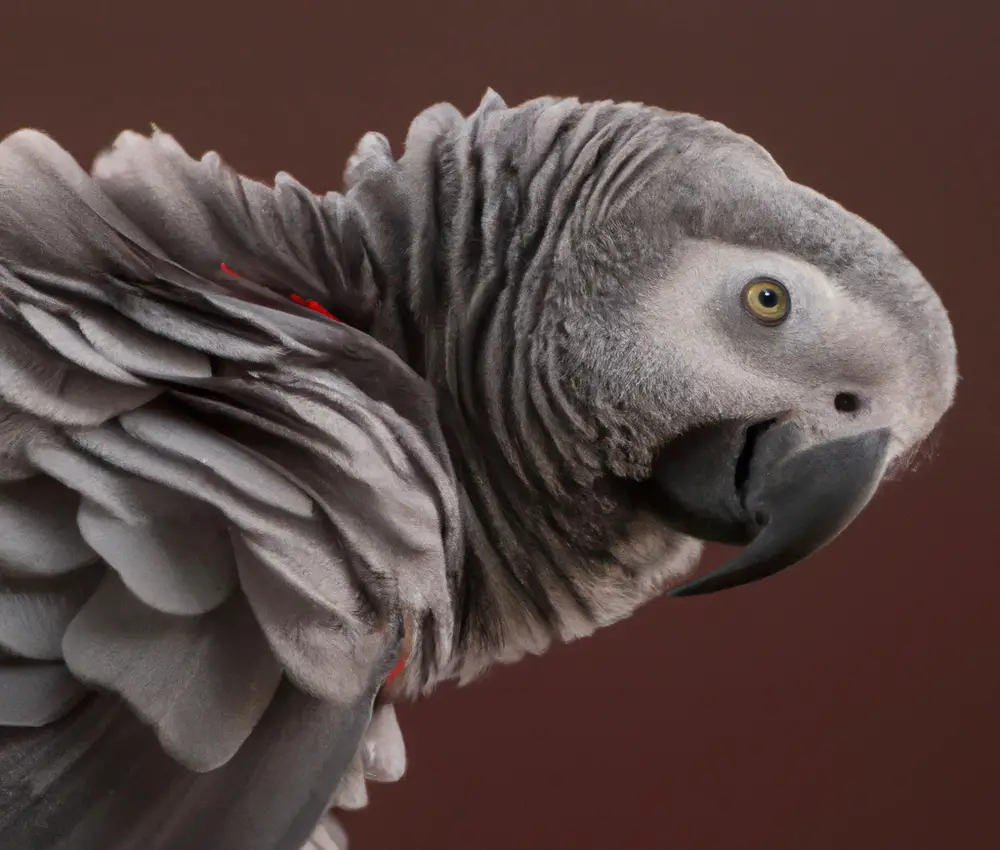
Final Verdict
The average lifespan of African Grey Parrots can vary depending on several factors such as genetics, diet, environment, and veterinary care. While wild African Grey Parrots have been known to live up to 40-50 years, those in captivity can live even longer with proper care and attention.
To increase the lifespan of your African Grey Parrot, it is important to provide them with a nutritious diet, a suitable environment, mental and physical stimulation, and regular veterinary care.
By taking these steps, you can ensure that your feathered friend enjoys a long and healthy life by your side.

